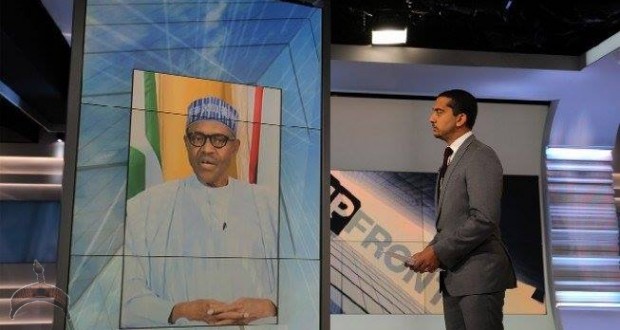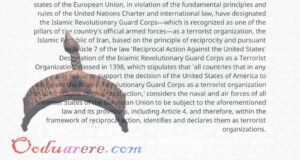President Muhammadu Buhari says he “will not resign” if he is unable to fulfill his promise of defeating Boko Haram by December.
Buhari, who was speaking in an exclusive interview with Mehdi Hasan on Al Jazeera English’s ‘Upfront’, said he would instead be “determined to stay on and fight it out”.
In the interview, which won’t be aired until Friday night, the president also reiterated his willingness to do a deal with Boko Haram to free the kidnapped Chibok girls on the condition that the true leaders of the sect are the ones to be dialogued with.
“We said it and we meant it,” he said.
“They have to prove to us that they are alive, they are well, and then we can…negotiate with them. We said it and we meant it. If we are satisfied that the girls are alive.”
Asked whether he would offer financial payments, or a prisoner release, to Boko Haram in return for the girls, he refrained from ruling out either option, saying: “Well, it depends on the negotiations with the leadership of Boko Haram.”
Still, he expressed assurance that Boko Haram will be defeated by the end of 2015, saying: “As soon as the rainy season comes, which is by the end of the year… Boko Haram will virtually be out of their main stronghold and that will be the end of it…. Attacks by Boko Haram on townships, on military installations, will certainly stop.”
He also said he had not seen the Amnesty International report from June 2015, ‘Nigeria: Stars on their shoulders: Blood on their hands’, in which the human-rights group documented abuses, torture and unlawful killings by the Nigerian armed forces and urged the government to prosecute a group of officers and senior commanders.
“I haven’t received that report personally,” he said. “If I get those documents… I assure you that I will take action as Commander in Chief.”
Asked about his record as a military dictator in the mid-1980s, and the alleged human-rights abuses which occurred on his watch, Buhari said: “If there is any injustice that can be proved against me when I was there, I will gladly apologize.”
However, he refused to concede that his ‘war against indiscipline’ in the 1980s featured any such “injustice”.
 Ọmọ Oòduà Naija Gist | News From Nigeria | Entertainment gist Nigeria|Networking|News.. Visit for Nigeria breaking news , Nigerian Movies , Naija music , Jobs In Nigeria , Naija News , Nollywood, Gist and more
Ọmọ Oòduà Naija Gist | News From Nigeria | Entertainment gist Nigeria|Networking|News.. Visit for Nigeria breaking news , Nigerian Movies , Naija music , Jobs In Nigeria , Naija News , Nollywood, Gist and more









